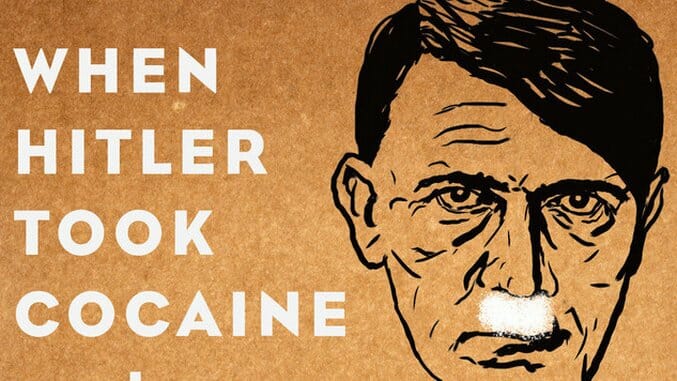When Hitler Took Cocaine and Lenin Lost His Brain by Giles Milton

A list of insurance claims taken out on pets drowned with the Titanic. A legend detailing the various forms of Chinese castrati. A detailed description—by the oh-so-fittingly named Sir Hamon L’Estrange—of a dodo a mere quarter century before the bird’s extinction. These moments are the winking epigraphs of grinning Death, gleaned from Giles Milton’s history of the bizarre, the obfuscated and the macabre.
And what a history it is! In dipping into that bottomless black well of history’s most obscure moments—and in particular, the gruesome and often comedic panoply of people, miseries and triumphs—Milton dredges up the missing brain of Lenin, highlights the miraculous survivors of volcanic eruptions and outlines the lives of the most fortunate (and unfortunate) souls to have ever traced their way through human history.
 Milton’s flippant take on history in When Hitler Took Cocaine and Lenin Lost His Brain does not fear the unsolved. Indeed, it thrives upon it; many of the vignettes still contain elements of mystery, and one, about escaped Alcatraz convicts, can even be participated in today (if you have any information about the most infamous prison break in American history, the Marshall service is eager to hear from you). The open-ended nature of some segments could potentially rankle readers, but historical moments where everything is explained would not make for much of a book, would they? Milton is purposefully ushering us into the fog, after all.
Milton’s flippant take on history in When Hitler Took Cocaine and Lenin Lost His Brain does not fear the unsolved. Indeed, it thrives upon it; many of the vignettes still contain elements of mystery, and one, about escaped Alcatraz convicts, can even be participated in today (if you have any information about the most infamous prison break in American history, the Marshall service is eager to hear from you). The open-ended nature of some segments could potentially rankle readers, but historical moments where everything is explained would not make for much of a book, would they? Milton is purposefully ushering us into the fog, after all.
To that end, some of Milton’s least interesting cases involve titanic monsters like Hitler, whose leviathan bones—soaked to the marrow with drugs and myth—have been picked over so many times they surely must resemble the nyla bone of a particularly masticatory mutt. Getting the Führer in front and out of the way makes the reliance on Hitler much more tolerable, while tales from the periphery of the Nazi horror and Imperial Japan provide rounded, if not excessive, coverage of World War II.
The true soul of the book comes not when Milton is dealing with either of the titular subjects, but when he explores the lives of altogether ordinary people—and animals—thrust into extraordinary situations. In learning the histories of Ada Blackjack, the Inuit “female Robinson Crusoe” who survived 23 months on an island north of Siberia, Ann Saunders, cannibal in extremis and shipwreck survivor, and Cher Ami, the heroic homing pigeon of World War I, we discover embers from the past that still merit illumination.